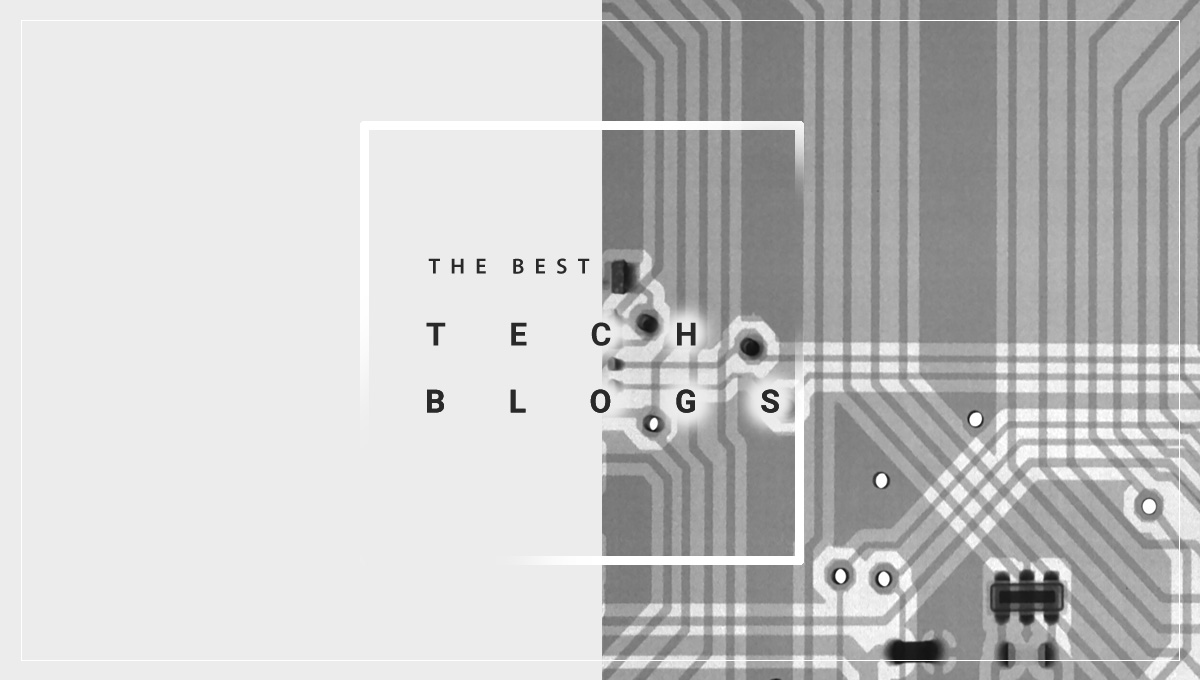The Best tech blog: Your Crucial Overview to Browsing the Digital World
The Best tech blog: Your Crucial Overview to Browsing the Digital World
Blog Article
Just How Blockchain Innovation Is Revolutionizing Data Safety And Security
Blockchain technology is fundamentally changing the landscape of data protection by presenting a decentralized structure that guarantees improved openness and resilience. Unlike traditional systems, which count on central data repositories, blockchain distributes information throughout a network, minimizing vulnerabilities and single factors of failing. The use of advanced cryptographic methods makes sure that data remains tamper-proof, promoting depend on among individuals and stakeholders.
The Essentials of Blockchain
Blockchain innovation, a revolutionary principle in electronic information management, essentially transforms just how info is kept and secured. At its core, a blockchain is a distributed ledger that tape-records deals across a network of computer systems, making sure transparency and immutability.
Secret to recognizing blockchain is the hashing process, which secures deal data right into an unique alphanumeric code. This cryptographic feature makes sure that any type of alteration in the purchase data leads to a completely various hash, therefore guarding versus tampering. The consensus system, one more critical part, verifies and confirms new purchases through a network of nodes, thus removing the need for a central authority.
Moreover, blockchain's append-only structure makes certain that data, as soon as included, can not be removed or altered. This characteristic guarantees a irreversible and verifiable record of purchases, cultivating trust fund amongst individuals. Therefore, blockchain provides a durable framework for information stability, providing markets a reliable approach for tracking and managing digital details in a safe and secure, transparent fashion.
Decentralization and Safety And Security
Decentralization, a core concept of blockchain modern technology, substantially enhances information safety and security by dispersing control throughout a network instead than relying upon a particular, central entity. This distribution alleviates the threat of solitary points of failure, which prevail in typical centralized systems. By spreading information throughout numerous nodes, blockchain ensures that also if one node is compromised, the entire network remains safe and secure. This redundancy not only strengthens the stability of the information yet likewise raises its strength to cyberattacks and system failings.

In addition, decentralization equips customers with greater control over their data. Each participant in the network has accessibility to the whole blockchain, allowing them to verify and audit purchases independently. This transparency fosters count on amongst individuals, as they do not have to rely upon a central authority to guarantee information integrity. On the whole, decentralization contributes in enhancing information safety and security in blockchain networks.

Cryptographic Techniques
At the heart of blockchain technology, cryptographic methods play a critical role in securing information, guaranteeing both discretion and integrity. Cryptography in blockchain utilizes a combination of symmetric and crooked formulas to encrypt data, making it accessible just to authorized parties.
Hash functions are one more vital part, changing input data right into a fixed-size string of characters, efficiently creating an unique electronic finger print for each and about his every block. This makes sure that any type of attempt to modify the data will certainly result in an entirely different hash, hence maintaining the immutability of the blockchain. Additionally, digital signatures confirm the authenticity and honesty of transactions, giving a layer of non-repudiation.
The decentralized nature of blockchain, integrated with durable cryptographic strategies, removes the requirement for intermediaries, lowering potential susceptabilities. As blockchain modern technology develops, innovations in cryptography such as zero-knowledge proofs and homomorphic file encryption proceed to boost security actions, additionally strengthening information defense in this revolutionary electronic ledger system.
Use Cases Across Industries

In the healthcare industry, blockchain guarantees the secure go to this site storage space and sharing of person records, promoting interoperability while safeguarding sensitive data from unauthorized gain access to. This innovation encourages patients with control over their medical background and assists in seamless sychronisation among healthcare service providers.
Supply chain administration advantages significantly from blockchain's immutable journal, which makes certain traceability and authenticity of products from origin to customer. By boosting openness, blockchain helps reduce problems such as counterfeiting and dishonest sourcing.
In addition, blockchain's decentralized nature is improving the energy sector by enabling peer-to-peer power trading, where customers can deal excess renewable resource straight. This cultivates a much more lasting and efficient power ecological community.
In the realm of copyright, blockchain offers a tamper-proof system for developers to sign up and shield their works, making sure rightful attribution and reasonable settlement. These diverse usage instances underline blockchain's role as a crucial force in redefining information security throughout sectors.
Future of Data Protection
As we seek to the future of data security, blockchain innovation is positioned to play a critical function in guarding digital info. With its decentralized and immutable characteristics, blockchain uses a durable framework for protecting delicate information against unauthorized gain access to and cyber dangers. This modern technology guarantees that when information is videotaped, it is nearly impossible to change without detection, therefore giving a significant benefit over standard information storage space methods.
The integration of blockchain with other sophisticated modern technologies, such as expert system and the Web of Things (IoT), is anticipated to enhance information defense approaches additionally. By leveraging smart contracts, organizations can impose and automate safety and security protocols, reducing human mistake and boosting effectiveness. Furthermore, blockchain's capability to provide page clear and traceable transactions will certainly bolster count on and responsibility in information monitoring techniques.
As regulatory landscapes progress, blockchain's compliance-friendly nature will become significantly pertinent. It can help organizations satisfy strict information protection laws, such as the General Information Defense Regulation (GDPR) and the California Consumer Personal Privacy Act (CCPA), by providing verifiable records of data handling activities. Inevitably, blockchain's one-of-a-kind features position it as a transformative device in the ongoing pursuit to secure the digital world against ever-evolving cyber risks.
Final Thought
Blockchain technology represents a standard change in data safety by leveraging decentralization and cryptographic strategies to enhance openness, depend on, and information honesty. Its capacity to get rid of single points of failing and use agreement devices considerably lowers the threat of fraudulence and cyberattacks. This innovative framework not just equips users with greater control over their information but likewise straightens with governing conformity. As cyber hazards advance, blockchain becomes a vital device for robust data protection across various sectors.
Blockchain modern technology is essentially modifying the landscape of information safety by presenting a decentralized framework that guarantees boosted openness and durability. Unlike standard systems, which rely on centralized information repositories, blockchain disperses information throughout a network, lessening susceptabilities and solitary points of failing.Decentralization, a core concept of blockchain technology, significantly boosts information safety by dispersing control throughout a network instead than depending on a singular, centralized entity.At the heart of blockchain technology, cryptographic strategies play a pivotal duty in safeguarding information, making certain both discretion and honesty.Blockchain innovation represents a standard shift in information safety and security by leveraging decentralization and cryptographic techniques to enhance openness, trust fund, and data honesty.
Report this page